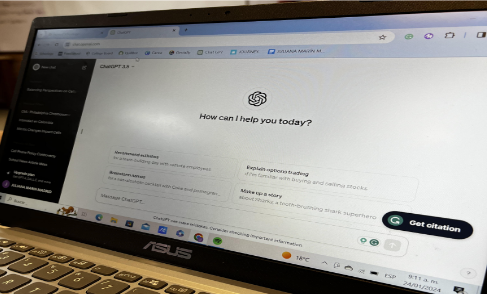Instagram’s Influence has Repercussions on Body Image
Up to 91% of women feel insecure about their bodies and resort to dieting to achieve an ideal body shape. Yet, only 5% naturally possess the stereotypical bodies commonly portrayed in the American media.
Social Media has become an important part of most teenage girls´ daily lives. It is the dominant indicador of fashion and trends. Adolescents spend hours browsing their favorite brands of clothing and the models who wear them. Most advertising campaigns are photoshopped to portray impossibly thin and unrealistic bodies. As Instagram continues to gain popularity, it fuels a lack of self confidence, increases girls’ desire for perfect bodies and encourages eating disorders.
The environment in many High Schools threatens girls with low self esteem who believe their friends have “prettier” faces and “better” bodies; similar to those on social media. Beauty is true for diverse appearances, but advertising campaigns keep portraying only skinny models. The lingerie brand Victoria’s Secret recently faced criticism through social media after launching their new campaign called “The Perfect Body.” More than 15,000 people signed a petition calling on the brand to apologize and terminate the campaign.
Columnist Sarah Vine from The Daily Mail wrote, “There is a line between aspiration and thinspiration, and this campaign clearly oversteps the mark. As for their use of the word ‘perfect’, it’s not only offensive to the 99.9% of the female population who don’t share the models’ ‘perfect’ proportions, it’s also deeply irresponsible, if not downright cruel.” Hundreds of brands still launch campaigns of this type, where models appear perfect and their bodies unrealistic.
While some teenagers develop eating disorders due to traumatic childhood events, many people believe social media has a greater influence. According to the National Eating Disorders Association (NEDA), “Similar to their European and American counterparts, exposure to thin-ideal media images was related to a significant increase in body dissatisfaction among young adult women, according to a recent study.” Girls continue to put their lives at risk as they develop eating disorders such as anorexia and bulimia. Messages within social media are unrealistic, fake and not backed up by science, though teenagers still trust them to make decisions in regards to their bodies. Girls who are not familiar with the truth, are commonly the ones who undermine confidence in their bodies. Any girl with a low self esteem is constantly in danger of yielding to an eating disorder.
Columbus School students care for popularity and trends, making apps such as Instagram extremely influential. Several students interviewed, agree the pressure generated on girls is visible on a daily basis. Besides, 4 students out of those 5 interviewed, agree that Instagram is the most determining social app for girls regarding their bodies. On interviewee, who faced an eating disorder, explained how the biggest trigger of this process was seeing her best friend looking skinnier than her on Instagram pictures.
To solve this problem, we all need to support a growing culture of self acceptance and love. We can start by eradicating eradicating stereotypes, as we praise people’s features and natural beauty. This way any girl with a low self esteem, who repeatedly battles against her insecurities, will not all develop an eating disorder, nor feel inferior than a model for not having a thin body.

























